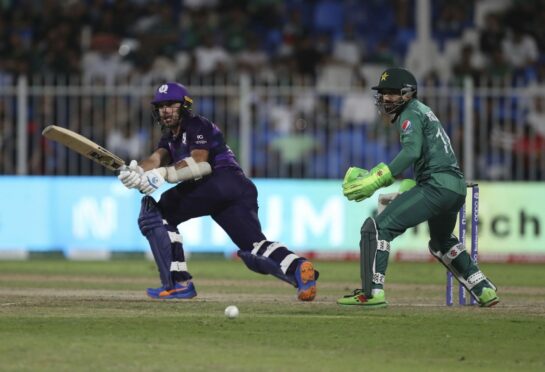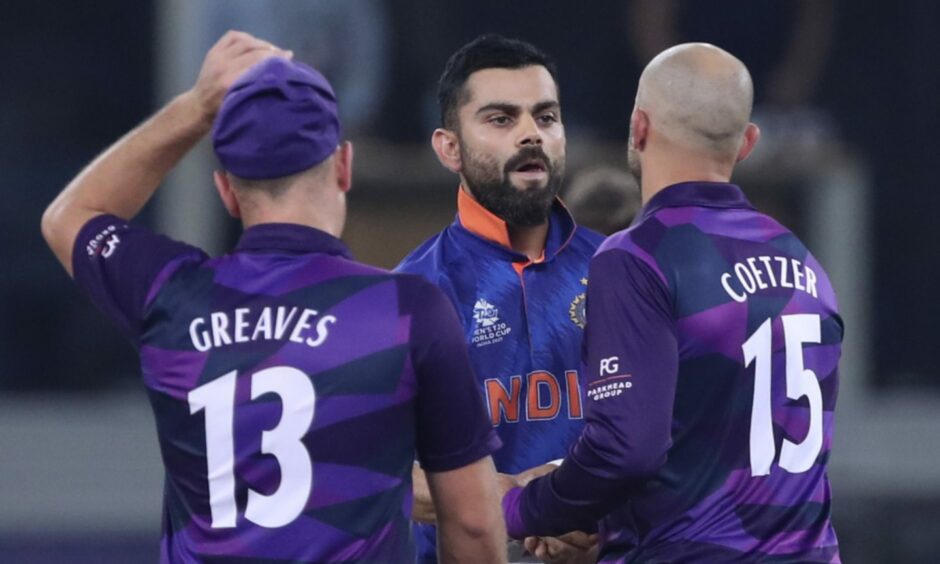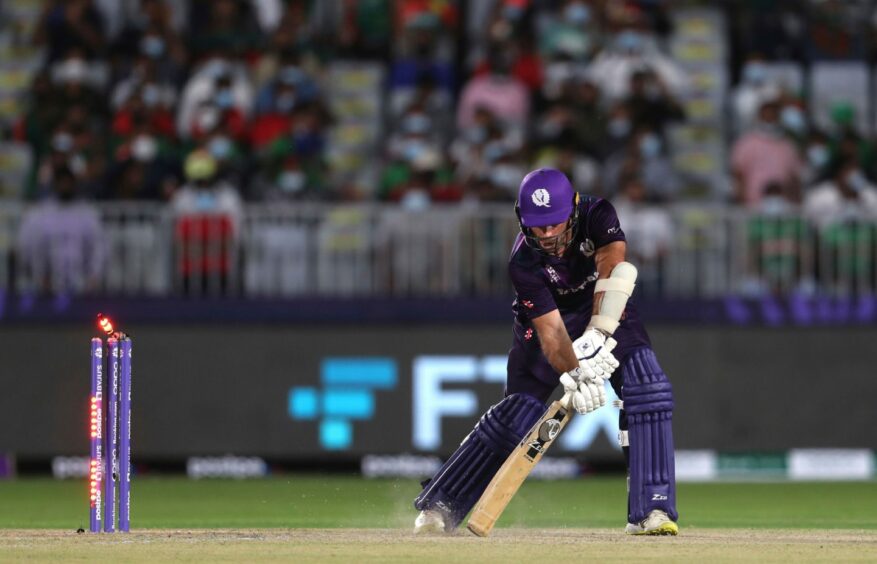Scotland cricket captain Kyle Coetzer has led from the front in promoting the game in this country, most notably at the recent T20 World Cup.
While the spotlight was shone on the Saltires during their team in Oman and the United Arab Emirates, Coetzer wasted no chance to flag up the exciting potential to further the sport in Scotland.
His call for “bold and brave” ideas from the game’s governing bodies received its first validation earlier this week, with the announcement that Scotland would co-host the T20 World Cup in 2030 with England and Ireland.
There are some significant steps he believes Scottish cricket needs to take before then. Finding them their own home – or building a new one – would be a big step forward.
Their current base is at Mary Erskine School in Edinburgh, where they train indoors during the winter, while they have used Heriots’ home ground Goldenacre during the summer.
The Grange is their primary home ground for competitive matches, while Mannofield in Aberdeen hosted the opening round of fixtures for the ICC Cricket World Cup League 2 in 2019.
“That’s where we need to go if I’m being honest,” said Coetzer. “Let’s put things into perspective: we’ve just been playing against the world’s best and no disrespect to where we’ve used, but we’re training on a school second team’s field which is uncovered.
“The school do a fantastic job for us, but it’s time to start thinking bigger, thinking forward and how we can move things on to the next level. If we’re turning up to play against India in one of these world events, we want to be preparing as best as we possibly can.
Lots of exciting cricket ahead and how good that @CricketScotland, @CricketNamibia1 and @usacricket get a chance co host some of the events 👌🏼👌🏼👌🏼 Make sure you put 2030 in your diary 😎 https://t.co/9PLRt65UA6
— Kyle Coetzer (@MeerGoose11) November 16, 2021
“Although it’s done the job for us now, we need to be thinking bigger. We can’t be leaving a school second team ground to go and play against the world’s best. The gap is just too great for us to improve.”
As with any ambitious project such as this, finance is going to be paramount. That would likely involve sporting bodies within Scotland coming forward to help make it a reality.
“We need to be practising with more support around us,” added Coetzer. “That means staff, whether that be in-house or on the field. We need to have better pitches; the better the pitches are, the more it encourages bowlers and batters to be better.
“If we want to compete against the best we need to have some of this. There’s no point being scared now. We’ve got this opportunity and we need to make the most of it.
“We probably need some support from wherever that can come from in Scotland. Not to name any names, but we probably need that support to make this happen.”
Qualifying for the Super 12 at this World Cup was probably the biggest watershed moment Scottish cricket has had for many a year, moreso than the memorable six-run win over England in 2018.
What it did was guarantee Scotland fixtures against high-level opposition, something which is lacking in the admittedly-improving arena of associate cricket.
Capitalising on this exposure is paramount and gaining co-hosting rights for 2030 – no venues have been confirmed yet – feels like a positive start.
“It’s pretty special news, in terms of thinking ahead and planning for the future,” said Coetzer, who grew up playing for Stoneywood Dyce in Aberdeen. “It’s organisation-changing really, an event like that which can give us a push in the right direction following all the good media and coverage we’ve had recently.
“It’s something we need to help push us on. I know there’s plenty of time between now and then – there’s plenty of events between now and then where hopefully we can play our part in as many as possible.
“It’s something we need to make sure we dive into head-first. We need to do it right and do it well.”
Coetzer, who was named associate cricketer of the decade last year, sees himself remaining in the game when his playing career finishes. When there are going to be more opportunities to showcase Scottish cricket to the world, few could blame for the 37-year-old for keeping the flame burning for the game he loves.
“It’s going to be an exciting journey to get there,” he added. “One thing that’s hugely vital for us is we have to keep looking to improve and develop our A team structure.
“The organisation does as much as it can, but to find strength in depth in the playing group, we have to improve that structure. If we want to find consistency amongst our performances, that has to improve, just like what’s expected from our level on the frontline.
“To find that consistency we need to keep developing other areas of the game in Scotland. There’s been some fantastic players who have come through this organisation over the years and there are some world-class players amongst our line-up; given all the challenges faced in being an associate nation and playing cricket in Scotland, look at how well this team has done.
“Those coaches, staff members, everyone behind-the-scenes have managed to create that. That’s from being completely and utterly under-staffed and overworked in every area.”


